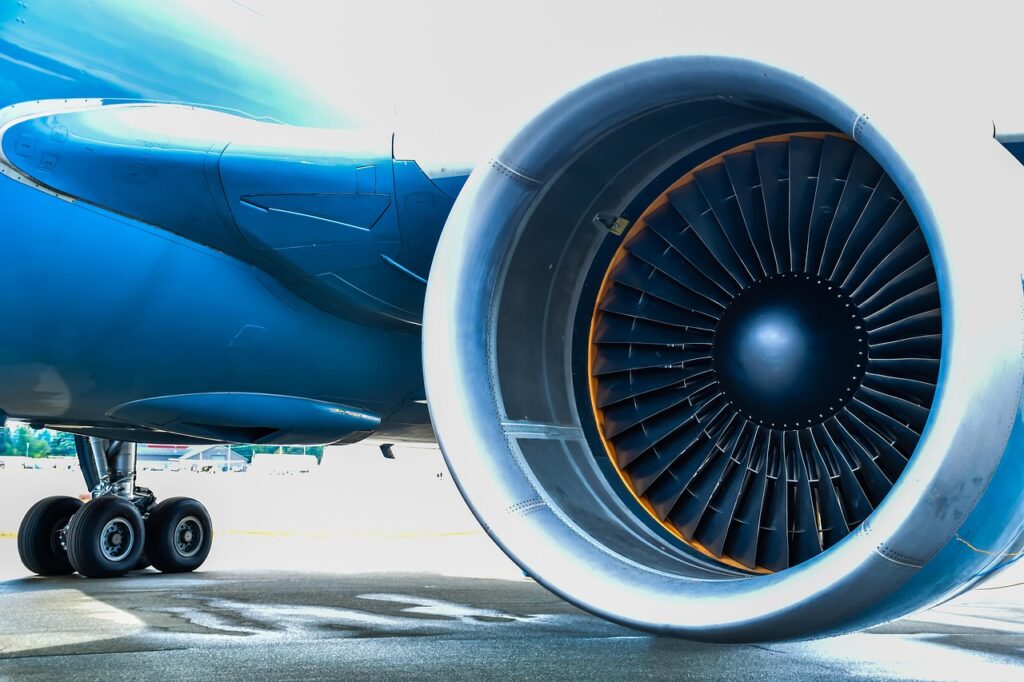The increasing demand for air travel has given the European aerospace sector a shot in the arm, which in turn, has driven growth in the need for maintenance, repair, and overhaul (MRO) services. Ratings agency, Fitch, for example, highlights an “improving” outlook for 2025, attributing this to strong demand and heightened production activities.
Challenges with rate of production and delivery of new aircraft from Airbus and Boeing, which have over a decade worth of orders on their books respectively, has had a transformative impact on the employment market for aircraft engineers. This presents both opportunities and obstacles for skilled professionals in this field.
Europe holds a significant position in the global aircraft engineering services market, accounting for over 30% of global revenue in 2023. The market is projected to grow at a compound annual growth rate (CAGR) of 4.2% from 2023 to 2030. This growth is fuelled by the region’s emphasis on research and development, sustainability, and adherence to strict aviation regulations.
Demand for Aircraft Engineers
The demand for aircraft engineers is surging globally, with Boeing estimating a need for over 600,000 new engineers in the next two decades. In Europe, this demand is driven by the expansion of air travel and the development of next-generation aircraft. Airbus predicts that passenger traffic will double by 2041, necessitating substantial workforce growth. However, Europe faces unique challenges due to an ageing workforce, with 27% of engineers expected to retire within the next decade, whilst competition with other industries is also drawing people out of the sector.
The shortage of qualified aviation engineers has become a critical issue. Brexit has further complicated this by limiting cross-border recognition of engineering licenses between the UK and EU member countries.
According to Airbus’s Global Market Forecast for 2021–2040, there is a need for 710,000 highly skilled technicians to enter the industry over the next two decades. This demand includes not only maintenance services but also flight, ground operations, and sustainable services.
Future outlook
The European aircraft engineering market is poised for growth but must overcome its challenges to maintain its global leadership position. By investing in innovation and talent development, Europe can still play a major role in shaping the future of aviation.
To address workforce shortages, the industry recognises that it must focus on training programs and partnerships with educational institutions to attract young talent. Additionally, fostering international collaboration can mitigate regulatory barriers and enhance workforce mobility.
Despite the positive growth outlook, the European aircraft mechanic market faces several challenges. These include rising labour and material costs, supply chain disruptions, and the need to adapt to new technologies. However, these challenges also present opportunities for innovation and efficiency improvements.
MRO providers in Europe are increasingly adopting advanced technologies to streamline and expedite maintenance tasks. This focus on efficiency not only reduces execution time but also enables maintenance providers to significantly cut down on aircraft turnaround times. In addition, the integration of AI and predictive maintenance technologies is becoming more prevalent, especially in countries like the UK and Germany. These innovations help reduce unscheduled maintenance and improve aircraft availability.
The European Union’s focus on carbon reduction has spurred innovation in green MRO solutions. This includes the development and implementation of eco-friendly materials and processes in aircraft maintenance. Such initiatives are likely to shape the future of the aircraft mechanic market in Europe, as sustainability becomes an increasingly important factor in the aviation industry.
The increasing adoption of predictive maintenance technologies and the integration of digital twins and other data-driven tools in MRO operations, for example, are helping to optimize maintenance schedules and reduce downtime. This technological integration is creating new roles and skill requirements for aircraft mechanics, driving the need for continuous training and development.
The currency of skills
As the European aviation sector continues to grow, the demand for skilled aircraft mechanics is expected to rise correspondingly. The market is likely to see further consolidation and partnerships, as evidenced by recent developments such as the exclusive talks between Air France and Airbus to form a joint venture focusing on component maintenance services for the Airbus A350.
The evolving landscape of aerospace engineering has led to a heightened demand for specialists in electrical, software, and systems engineering. A discussion among industry professionals indicates that companies like Airbus are particularly interested in these skill sets, especially within their civil and defence sectors.
In response to this growth, major industry players are actively recruiting. Deutsche Lufthansa, for instance, plans to hire approximately 10,000 new employees in 2025, with a significant portion dedicated to technical experts and maintenance personnel.
Moreover, certain European countries are grappling with brain drain, as skilled professionals migrate to wealthier northern nations in search of better opportunities. This trend poses economic challenges, including labour shortages and reduced tax revenues, prompting countries like Portugal to implement measures aimed at retaining talent.
To address the talent gap, various educational and apprenticeship programs have been established. For example, TUI offers an Aircraft Engineering Apprenticeship with a starting salary and benefits aimed at attracting new talent into the field.
Similarly, Ryanair has initiated an Aircraft Maintenance and Engineering Apprenticeship in collaboration with educational institutions, reflecting the industry’s commitment to developing a skilled workforce.
Airmen Technical Services is a specialist consultancy and brokerage of high calibre expertise in maintenance, repair, and modifications of fixed wing and rotary aircraft, utilising a global network of professional organisations and highly skilled freelance engineers.
If you are a qualified aircraft maintenance engineer who is interested in joining the Airmen network, click HERE



